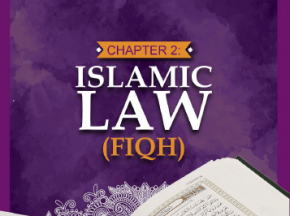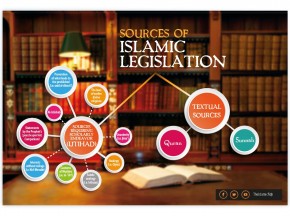content of level
What is the relationship between Islam & Tradition
What is the relationship between Islam & Tradition
Can I pay bribe to get into an Islamic school
Can I pay bribe to get into an Islamic school
The Dowry Paid by the Wife
This is a very bad tradition and an abominable deviation. It is contrary to the divine book, the Prophet’s tradition and the unanimous view of scholars. It is obligatory in Islam that the husband should pay his wife a dowry, or mahr. For various reasons, including men’s unwillingness to tie themselves to a marital relationship, women in Western countries may resort to this practice. The Islamic Fiqh Council of the Muslim World League and Majallat al-Buhuth al-Islamiyyah, (i.e. Journal of Islamic Research), have both discussed this issue.
The concept of hadd in islamic law
The hudud, i.e. mandatory punishments, aim to deter people from committing acts of disobedience of Allah and encroaching on what He has forbidden. Thus, they help to spread security and reassurance in the community. In addition, they serve to absolve the guilty of their guilt.
Learn Fiqh with Al-Hakeem | Q&A
In this Lecture, Sh. Assim Al-Hakeem answering the questions of the followers. This course will cover all the practical rules that every Muslim, man or woman, should know, citing their bases in the Qur’an and the Sunnah.
Learn Fiqh with Al-Hakeem | Q&A
In this Lecture, Sh. Assim Al-Hakeem answering the questions of the followers. This course will cover all the practical rules that every Muslim, man or woman, should know, citing their bases in the Qur’an and the Sunnah.
Islamic Law (Fiqh)
A brief introduction to the meaning of Islamic jurisprudence (fiqh), its principles, and The Leading Fiqh Scholars such as Abu Hanifah, Malik, Al-Shafi'i and Ahmad ibn Hanbal. It includes all the practical rules that every Muslim, man or woman, should know, citing their bases in the Qur’an and the Sunnah in an easy and simple way.
Is it obligatory to follow a particular madhab?
Is it obligatory to follow a particular madhab? - Assim al hakeem.
Sources of Islamic legislation
Sources of Islamic legislation 1-Textual sources: - Quran -Sunnah 2- Sources requiring scholarly endeavor (ijtihad). 1- Unanimity (i.e. Ijma' ). 2- Analogy (i.e. Qiyas). 3- Subtle analogy (i.e. Isthsan). 4- Interests without rulings (i.e. Ma li Mursalah). 5- Customs of Muslims (i.e. al- 'Urf). 6- Statements by the Prophet’s (peace be upon him) Companions’. 7- The laws of earlier divine religions. 8- Prevention of what leads to the prohibited (i.e. sadd al-dhara’i'). 9- Al-Istishab.
Rulings of Islamic Law - A Simplified Presentation
This book, Rulings of Islamic Law: A Simplified Presentation is the first of a series which aims to provide Islamic knowledge covering all the areas of life in which a person needs authentic Islamic knowledge from validated sources.
The Lives of the Four Imams
The lives of the four great Imams, Hanafi, Maliki, Shafi'I and Hanbali.
Islamic Law & Its rationale
ISLAMIC LAW & ITS RATIONALE - Dr. Bilal Philips
The main reference works of the four schools
A brief introduction to the meaning of Islamic jurisprudence (fiqh), its principles, and The Leading Fiqh Scholars such as Abu Hanifah, Malik, Al-Shafi'i and Ahmad ibn Hanbal. It includes all the practical rules that every Muslim, man or woman, should know, citing their bases in the Qur’an and the Sunnah in an easy and simple way.
Imam Ahmad ibn Hanbal
A brief introduction to the meaning of Islamic jurisprudence (fiqh), its principles, and The Leading Fiqh Scholars such as Abu Hanifah, Malik, Al-Shafi'i and Ahmad ibn Hanbal. It includes all the practical rules that every Muslim, man or woman, should know, citing their bases in the Qur’an and the Sunnah in an easy and simple way.
Imam Al-Shafi'i
A brief introduction to the meaning of Islamic jurisprudence (fiqh), its principles, and The Leading Fiqh Scholars such as Abu Hanifah, Malik, Al-Shafi'i and Ahmad ibn Hanbal. It includes all the practical rules that every Muslim, man or woman, should know, citing their bases in the Qur’an and the Sunnah in an easy and simple way.
Imam Malik ibn Anas
A brief introduction to the meaning of Islamic jurisprudence (fiqh), its principles, and The Leading Fiqh Scholars such as Abu Hanifah, Malik, Al-Shafi'i and Ahmad ibn Hanbal. It includes all the practical rules that every Muslim, man or woman, should know, citing their bases in the Qur’an and the Sunnah in an easy and simple way.
The Leading Fiqh Scholars (Founders of the four schools of Fiqh)
A brief introduction to the meaning of Islamic jurisprudence (fiqh), its principles, and The Leading Fiqh Scholars such as Abu Hanifah, Malik, Al-Shafi'i and Ahmad ibn Hanbal. It includes all the practical rules that every Muslim, man or woman, should know, citing their bases in the Qur’an and the Sunnah in an easy and simple way.
Sources of Islamic legislation
A brief introduction to the meaning of Islamic jurisprudence (fiqh), its principles, and The Leading Fiqh Scholars such as Abu Hanifah, Malik, Al-Shafi'i and Ahmad ibn Hanbal. It includes all the practical rules that every Muslim, man or woman, should know, citing their bases in the Qur’an and the Sunnah in an easy and simple way.
Islamic Law (Fiqh)
A brief introduction to the meaning of Islamic jurisprudence (fiqh), its principles, and The Leading Fiqh Scholars such as Abu Hanifah, Malik, Al-Shafi'i and Ahmad ibn Hanbal. It includes all the practical rules that every Muslim, man or woman, should know, citing their bases in the Qur’an and the Sunnah in an easy and simple way.



















